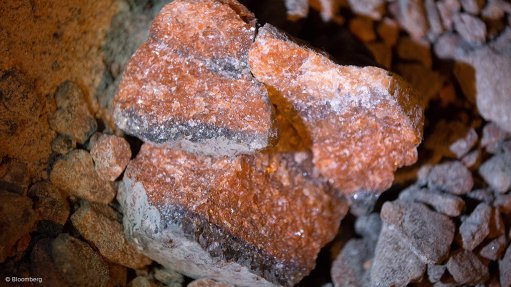
Photo by: Bloomberg
Dual-listed Kore Potash has announced that the capital cost estimation for its Kola potash project, in Congo-Brazzaville, has decreased by $520-million to $1.8-billion, following the completion of an optimisation study on the project.
Sepco Electric Power Construction Corporation undertook the optimisation study on behalf of the Summit Consortium, for which it is an engineering partner.
Kore has a memorandum of understanding in place with Summit Consortium.
An initial capital cost of $2.35-billion, on an engineering, procurement and construction (EPC) basis, was estimated in the project’s definitive feasibility study (DFS).
The construction period envisioned by the optimisation study also reduced to 40 months, from the 46 months set out in the DFS.
This while the Kola net present value (NPV) after tax improved to $1.6-billion and the internal rate of return improved to 20%, assuming a potash price of $360/t. On a current price basis of about $1 000/t, the Kola NPV after tax reaches close to $9.3-billion and IRR closer to 49% on an ungeared and after-tax basis.
The project is still expected to have a design nameplate capacity of 2.2-million tonnes of muriate of potash a year, for an initial 31-year mine life.
Kola remains envisioned as a conventional mechanised underground potash mine with shallow shaft access.
The Summit Consortium says an EPC contract proposal for the construction of Kola will be submitted to Kore in August, based on the new capital cost and construction schedule estimates.
The consortium will then provide the financial proposal for the project after Kore’s approval of the EPC proposal.
“The development of Kola is of global importance. The security of the world’s food supply is at risk as a result of disruptions to the supply of fertiliser globally.
“Recent geopolitical events highlight the risks inherent with potash production concentrated within a small number of companies and locations with operations situated long distances inland far from ports and global customers.
“New potash producers are required in locations closer to customers. With low capital intensity and low production costs, Kola is ideally situated to supply high-quality potash to meet growing global demand,” says Kore CEO Brad Sampson.
He adds that the successful completion of the Kola optimisation study moves Kore closer to production and that he eagerly awaits delivery of the construction contract and financing proposals.